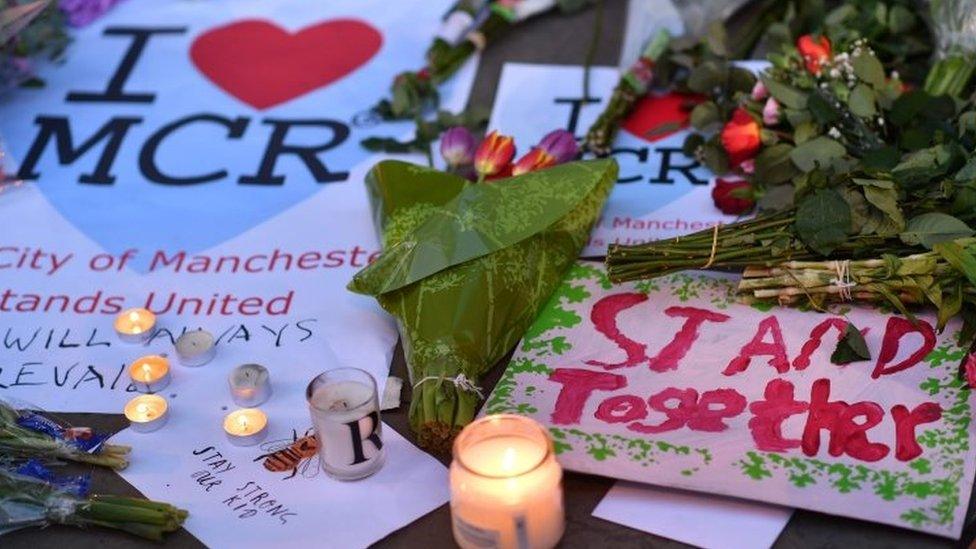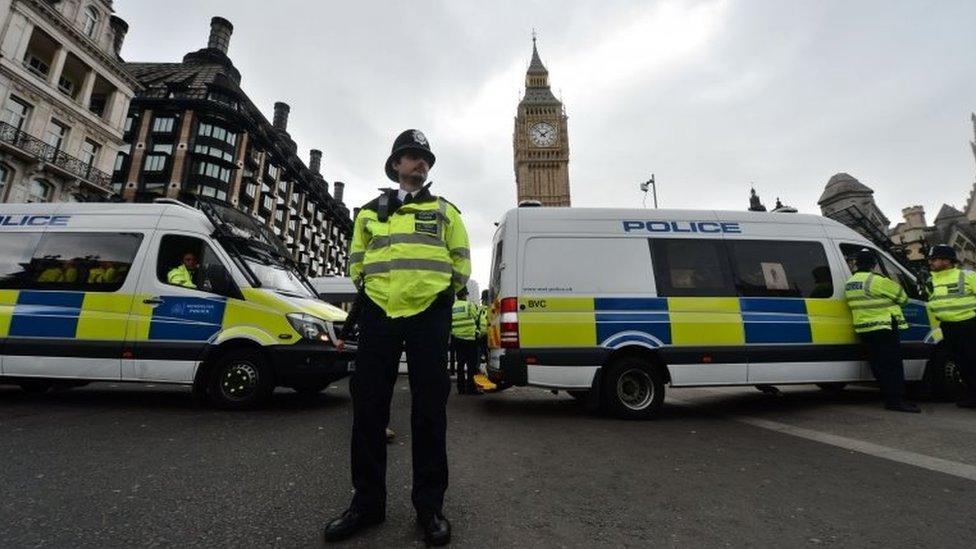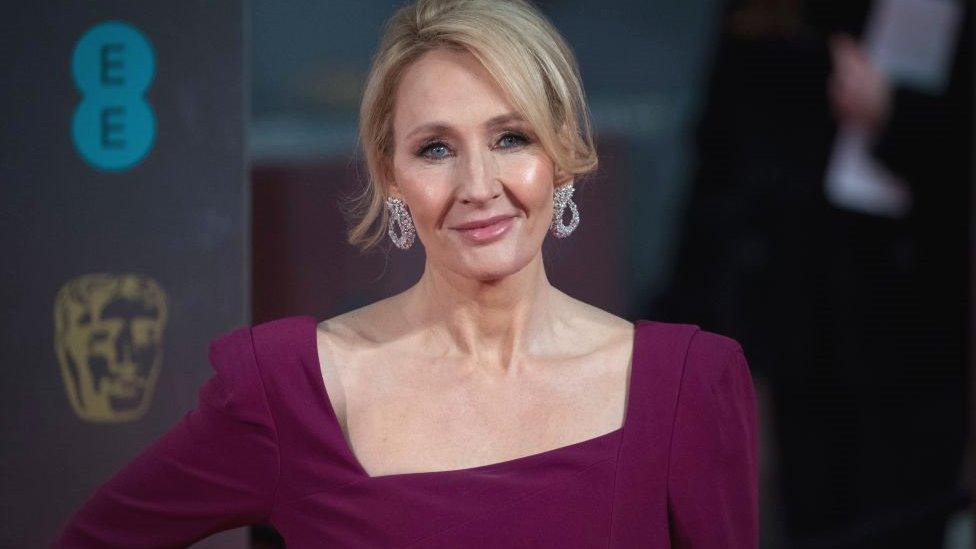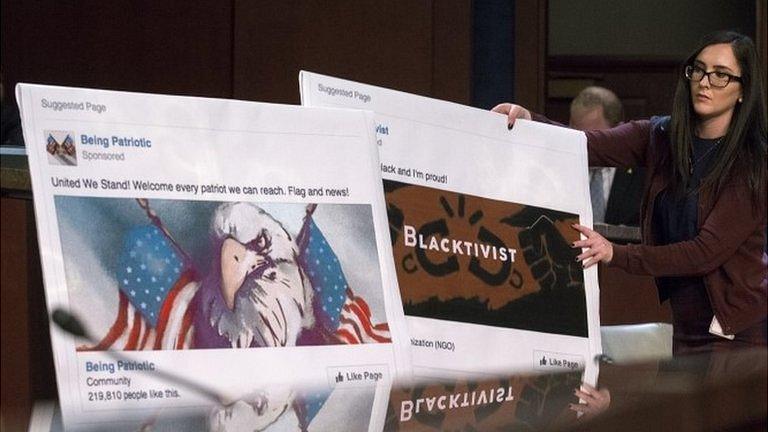Russia meddled on Twitter after UK terror attacks, study says
- Published

The study indicated that the Russian-linked accounts were most active after the Manchester Arena attack
Suspected Russia-linked Twitter accounts were used to "extend the impact and harm" of four 2017 terrorist attacks in the UK, a study says.
Cardiff University researchers, external have found hundreds of related messages in 47 accounts previously tied to Russia.
Some posts were anti-Muslim in nature, while others were critical of those who held such views, they report.
Moscow has not commented but has denied past claims it sought to meddle in Western democracies via social media.
Even so, one influential MP has condemned the activity.
"It is wrong that any organisation should spread disinformation following a terrorist attack, with the purpose of spreading hatred and making worse an already desperate and confusing situation," Damian Collins, chair of the digital, culture, media and sport select committee, told the BBC.
"At a time when victims are still lying on the ground and loved ones are in need of clear and accurate information about the situation, the deliberate spreading of disinformation is unforgivable.
"The methods of organisations such as the Russian-backed Internet Research Agency are becoming increasingly clear. Through our inquiry into fake news, I am determined that they should be exposed."
The BBC understands that the researchers did not share details of the accounts with Twitter.
The social network limited itself to a brief comment: "In each of the attacks, the tweets identified in this research represent less than 0.01% of the total tweets sent in the 24-hour period following the attack."
Terror attacks
Cardiff University's Crime and Security Research Institute analysed millions of posts and comments gathered from various social media platforms, before honing in on 70 suspected "sock puppet" Twitter accounts.
Forty-seven of these had previously been tied to Russia by US Congressional investigators, the Russian magazine RBK and others. It was these on which the inquiry then focused.

Five people were killed and 50 injured in the Westminster attack on 22 March
The researchers then determined that after:
March's attack at Westminster Bridge, 35 relevant original messages had been posted by the accounts
May's pop concert attack in Manchester, 293 messages had been posted
June's London Bridge attack, 140 messages had been posted
June's Finsbury Park attack, seven messages had been posted
This tally of 475 messages were reposted more than 153,000 times in total by others, the researchers determined.
Examples included: "Another day, another Muslim terrorist attack. Retweet if you think that Islam needs to be banned!"
In one case, an account named @TEN_GOP - which presented itself as belonging to a Tennessee-based American - took issue with a photo of a woman in a hijab supposedly ignoring victims of the Westminster Bridge attack.
"She is being judged for her own actions & lack of sympathy. Would you just walk by? Or offer help?" said the tweet.
But another Russian-linked account, @Crystal1Johnson - which appeared to belong to a civil rights advocate - took an opposing stance.
"So this is how a world with glasses of hate look like [sic] - poor woman, being judged only by her clothes," it posted.
The researchers highlighted that the accounts sometimes tweeted the messages directly at celebrities, including the author JK Rowling, in an attempt to get their posts noticed by their followers.

One account asked JK Rowling why she had not expressed "outrage at the Muslim terror attack" in Manchester
In addition, they note that several messages were directed at the English Defence League founder Tommy Robinson and UKIP's ex-leader Nigel Farage.
"The evidence suggests a systematic strategic political communications campaign being directed at the UK designed to amplify the public harms of terrorist attacks," concluded the authors.
"The implication is that we... should focus upon rapidly establishing what counter-measures are effective in offsetting the impact of 'soft facts' propagated by overseas interests as they seek to do the work of terrorist organisations by amplifying the capacity and capability of violent acts."
The researchers acknowledged that it was difficult to prove the activity had indeed been backed by the Russian authorities, but they added that they believed there were likely additional accounts they had not spotted.
Another independent researcher who has also investigated suspected Russian social media posts said more work needed to be done.
"Using fragmented datasets we have observed unusual activities on Twitter - eg an increase in the number of fake accounts spreading biased information," commented Prof Sasha Talavera from Swansea University.
"But we cannot comment definitively about their scale and influence without a large-scale investigation."
- Published13 December 2017
- Published2 November 2017
